How Manila has changed the Russian envoy
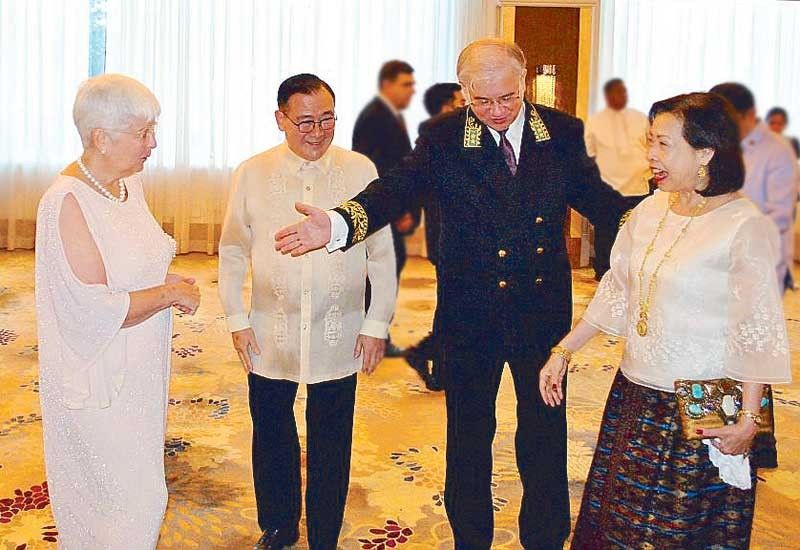
We can learn a lot from Russia, the world’s largest country, one of the world’s top economies, military and ballet superpower. But did you know that Russia’s ambassador to the Philippines credits the country for teaching him an equally powerful, disarming skill?
“Ever since I was posted in Manila,” Russian Ambassador Igor Khovaev said during the Day of Russia Reception at the Makati Shangri-La, “I have learned to smile more.” Like some Russians, he pointed out, he never really used to smile a lot.
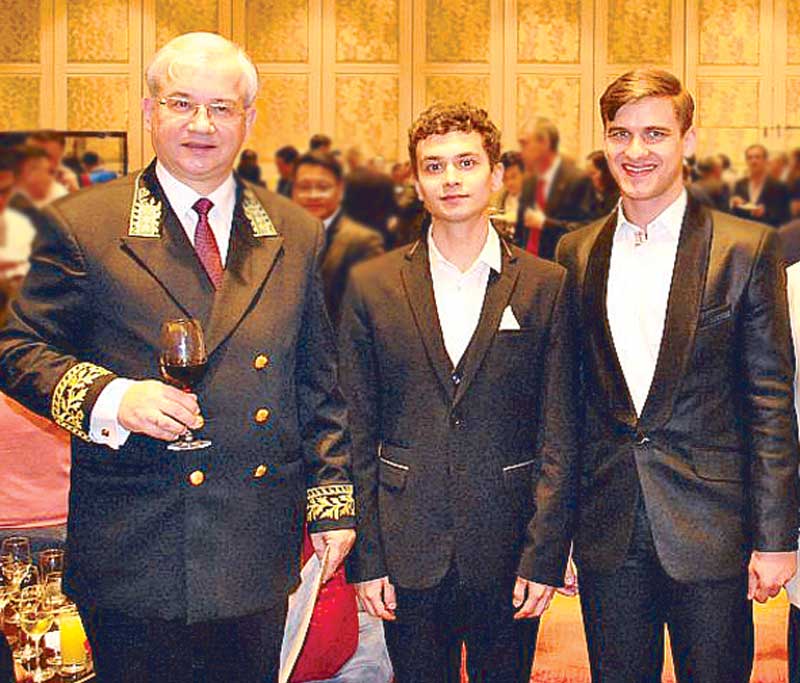
Ambassador Igor Khovaev, pianist Ivan Koscheev and singer Kirill Komarov.
Filipinos, despite the challenges they face in life — the poverty, the traffic — find many reasons to smile every day, and it’s apparently infectious. (Probably because, “It’s more fun in the Philippines.” Probably because all this sunshine makes us look at the bright side of life.)
Aside from bridging Russia and the Philippines with a wide smile, Khovaev said that the two countries are linked by a “solid partnership.”
“President Vladimir Putin expressed his solidarity with the government and people of the Philippines and confirmed the unconditional readiness and willingness to support the Philippines in your fair and legitimate struggle against terrorism, for peaceful life of all Filipinos,” he stressed.
“We look forward to the future with hope. There is a huge potential for further development of our ties and more productive engagements will greatly benefit our two nations,” said Khovaev, who has been posted in Manila for four years now, and is “not about to leave Manila.”
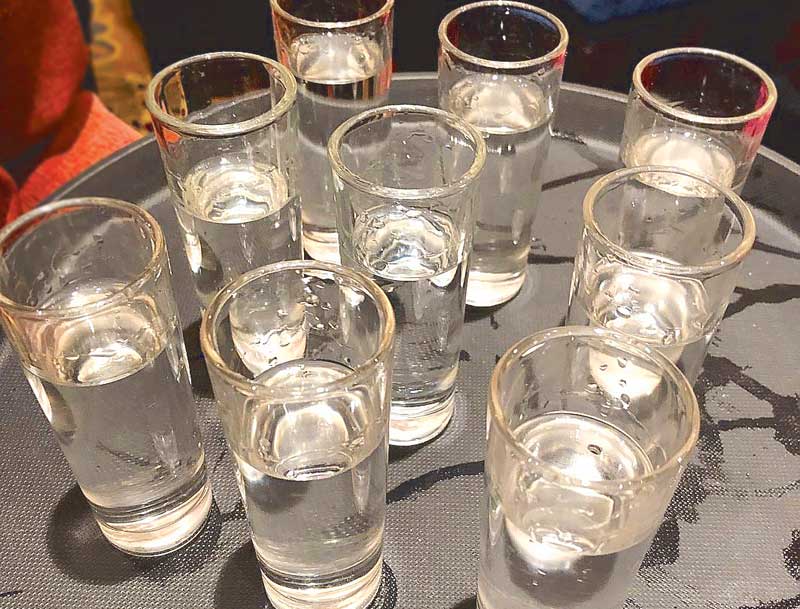
Shots of vodka flowed at the Russia Day reception. Photo by Joanne Rae Ramirez
He pointed out that Russia isn’t a faraway land as far as the Philippines is concerned. “If we look at the map more closely, we will see that the distance between the island of Luzon and the city of Vladivostok in the Far East of Russia is the same as that between Luzon and the Japanese island of Hokkaido. It turns out that the US East Coast is much further away from the Philippines than Russia.”
Now, I’ll drink (vodka) to that!
NZ Embassy goes ‘underground’
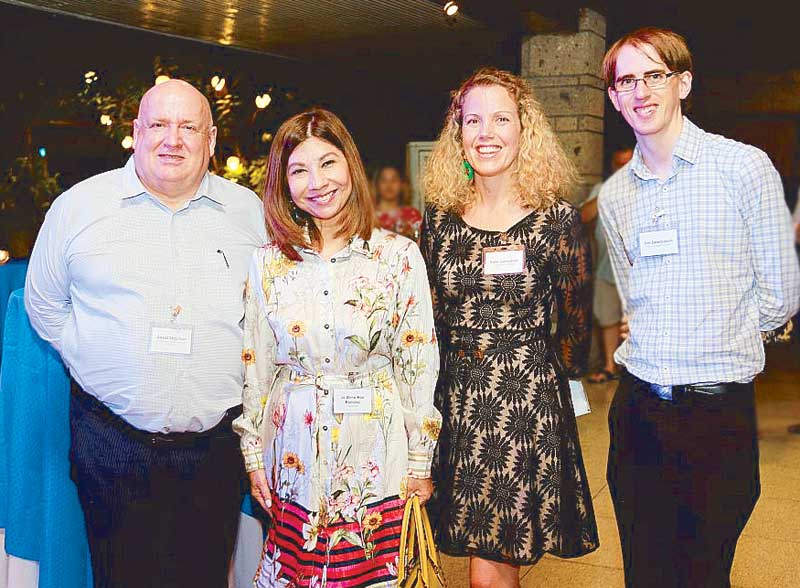
(From left) New Zealand Ambassador David Strachan, the author, Tourism New Zealand PR manager Kate Campbell and New Zealand Embassy Deputy Head of Mission Tim Stewardson.
Also this month, I relived the highs of my trip to Auckland, New Zealand in 2017 (where I walked the rim of the 328-meter Sky Tower and zoomed past five ziplines between tree tops) when Tourism New Zealand and the Ambassador of New Zealand to the Philippines, David Strachan, recently hosted a special dinner for media and distinguished guests in Manila at his residence, showcasing the richness of M?ori culture.
The culinary highlight of the event was a traditional h?ngi feast. The favorite fare for special occasions, the h?ngi is a method where food is cooked in an underground pit for several hours. In fact, a special pit was dug by the driveway of the Ambassador’s house in Forbes Park so the food could be cooked the traditional h?ngi way!
The special dinner was in celebration of the M?ori New Year, which is marked when the Matariki (also known as the Pleiades or the Seven Sisters), a cluster of stars, become visible in the New Zealand night sky during mid-winter (which is what the month of June is in New Zealand, the beginning of summer in Russia).
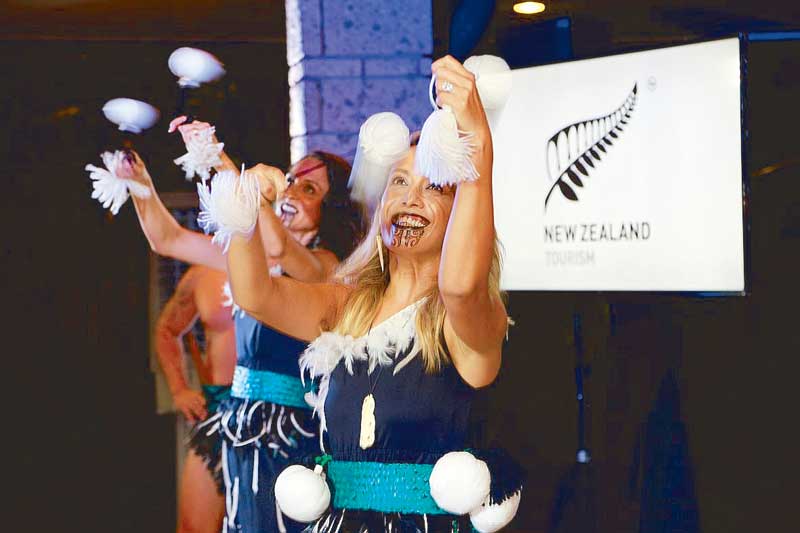
Renowned Hong Kong-based kapa haka group, Te Hokioi Ki Whanga Kakara.
The event also featured an exclusive one-night performance from Hong Kong-based kapa haka group, Te Hokioi Ki Whanga Kakara.
Strachan, a “balikbayan” diplomat as he was first posted in Manila in 1983, said, “What a great occasion it is to celebrate Matariki here in the Philippines, a country which New Zealand has shared close links with for many years.
“Not only do we share a passion for food and music — most significantly we have a shared sense of hospitality rooted in our deep regard for people and making them feel esteemed and valued.”
During the event, Tourism New Zealand launched its new brand marketing campaign, “100% Pure Welcome — 100% Pure New Zealand.”
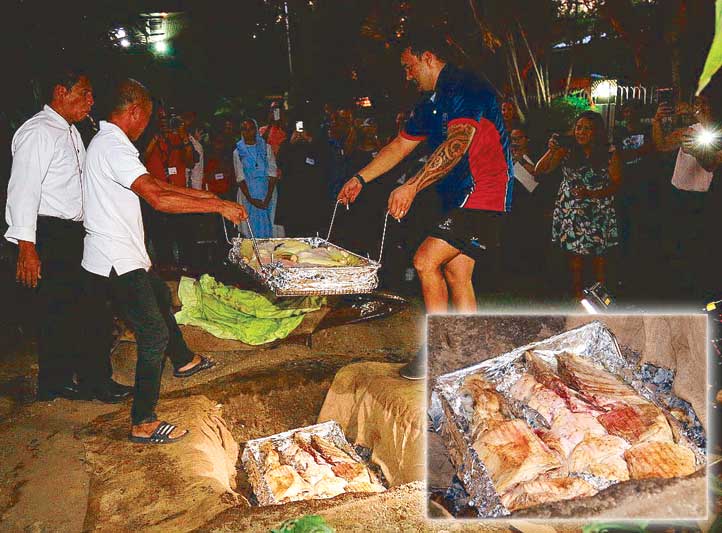
The hangi is a traditional Maori food cooked underground.
According to Steven Dixon, regional manager for South and Southeast Asia of Tourism New Zealand, the number of Filipinos traveling to New Zealand for a holiday has been growing — in the year ending April 2019, over 28,000 Filipinos visited the country, representing an increase of more than double (135 percent) the number from 2015, making the Philippines the fastest growing market.
* * *
The Philippines, Russia and New Zealand belong to different continents and time zones and it is heartwarming to share a toast, a dinner prepared underground, and a smile with Russians and New Zealanders who, at the moment — call the Philippines their home away from home.
* * *
(People now comes out Tuesdays and Fridays. You may e-mail me at [email protected]. Follow me on Instagram @joanneraeramirez.)
- Latest




























